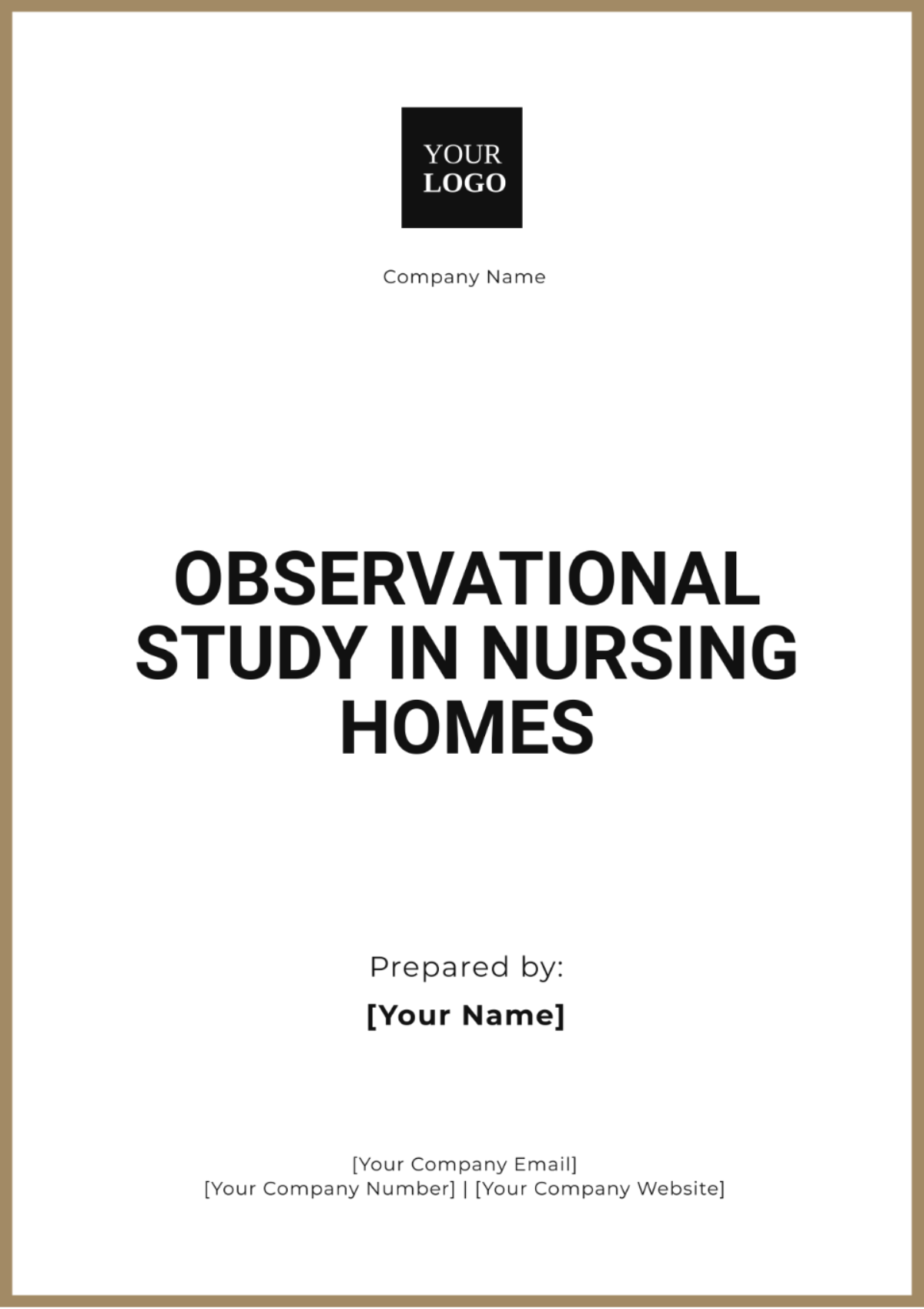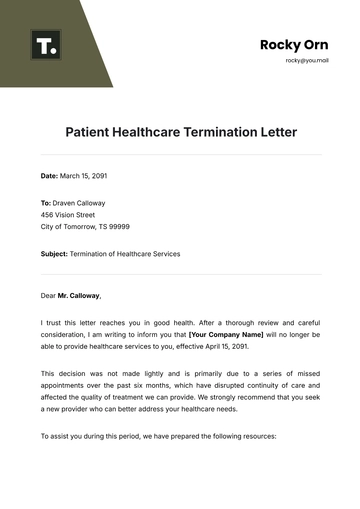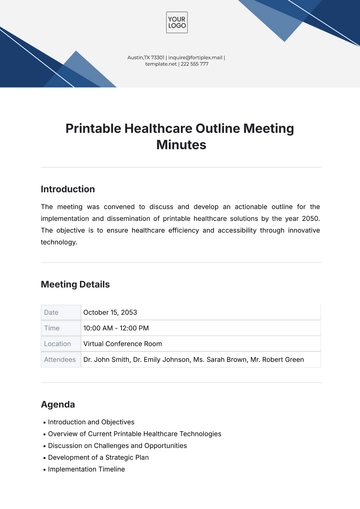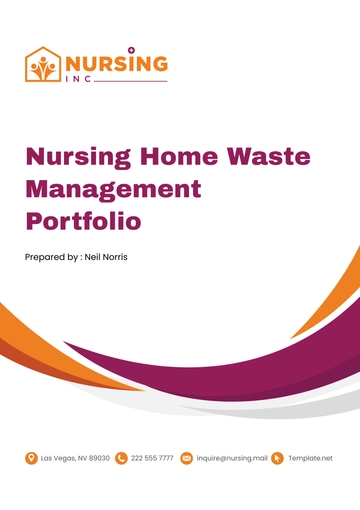Free Observational Study in Nursing Homes

Prepared by: [YOUR NAME]
Date: [DATE]
I. Introduction
This study aims to thoroughly investigate nursing home life by examining care quality, daily activities, and the living environment. It seeks to identify areas needing improvement, assess adherence to care standards, and evaluate resident well-being and satisfaction. The study's findings could significantly enhance nursing home operations by recommending better care practices and living conditions, ultimately benefiting both residents and providers.
II. Methodology
This study employs a non-participatory observational design. Researchers conducted observations over six months in three different nursing homes.
Observation Techniques | Data Collection Methods |
|---|---|
Unobtrusive monitoring of daily care routines | Field notes recorded during observations |
Direct observation of resident-staff interactions | Structured checklists for standard care procedures |
Environmental assessments of cleanliness and safety | Surveys administered to residents and staff |
III. Results
The results that were obtained from the observations conducted during the research are provided and explained in detail in the following sections.
Aspect Observed | Frequency of Compliance | Frequency of Non-Compliance |
|---|---|---|
Daily Care Routines | 85% | 15% |
Resident-Staff Interactions | 70% | 30% |
Environmental Cleanliness | 90% | 10% |
IV. Discussion
The results indicate that while there is a high level of compliance with daily care routines and environmental cleanliness, there is notable room for improvement in resident-staff interactions. Positive resident-staff interactions are crucial for emotional well-being and can significantly impact residents' satisfaction and overall health. The non-compliance in daily care routines, though relatively small, indicates potential areas where staff training and resource allocation could be improved.
The findings suggest that nursing homes are generally maintaining good standards but need to address specific shortcomings to enhance care quality comprehensively.
V. Recommendations
Taking into consideration the findings derived from the study, it is hereby proposed that the following recommendations be implemented:
Conduct Regular Staff Training: Implement ongoing training to enhance communication and interaction skills, fostering positive resident relationships and improving emotional well-being.
Increase Internal Audits and Reviews: Increase the frequency of audits and reviews of daily care routines to uphold high care standards and address compliance issues promptly.
Enhance Environmental Safety: Conduct more frequent cleanliness inspections and address hazards immediately to ensure a safe and hygienic environment.
Facilitate Resident Feedback: Encourage anonymous feedback through surveys to gain insights into resident needs and concerns, enabling targeted improvements.
These steps will improve care quality, ensure a safer environment, and enhance overall operational efficiency in nursing homes.
VI. Conclusion
To summarize the findings of this observational study, it brings to light both the strengths and the potential areas for improvement within nursing homes. The primary findings from this research underscore the crucial importance of maintaining high standards in daily care routines and ensuring cleanliness. Simultaneously, the study focuses on the necessity of enhancing the interactions between residents and staff members. By implementing the recommendations proposed in this study, likely, that the overall quality of care and the operational practices within nursing homes will experience significant enhancement.
VII. References
Smith, J., & Lee, A. (2052). Evaluating Care Quality and Staff Interaction in Modern Nursing Homes: An Observational Study. Journal of Elder Care and Management, 15(3), 45-60.
Brown, M., Patel, R., & Wang, L. (2054). Advancements in Nursing Home Environments: A Comprehensive Observational Analysis. International Journal of Geriatric Care, 22(1), 78-92.
Jones, K., & Green, T. (2056). Impact of Staff Training on Resident Well-being: Observational Insights from Nursing Homes. Journal of Healthcare Improvement, 19(2), 112-127.
- 100% Customizable, free editor
- Access 1 Million+ Templates, photo’s & graphics
- Download or share as a template
- Click and replace photos, graphics, text, backgrounds
- Resize, crop, AI write & more
- Access advanced editor
The "Observational Study in Nursing Homes Template" from Template.net is designed for detailed and organized documentation of observations in nursing home settings. Fully editable and customizable through our Ai Editor Tool, this template allows you to adjust fields to suit various research needs. Ideal for healthcare professionals and researchers, it helps you capture valuable data on resident care





























